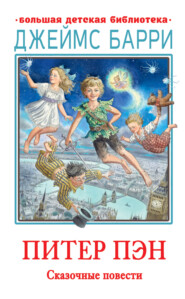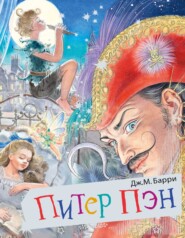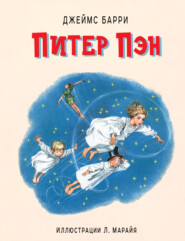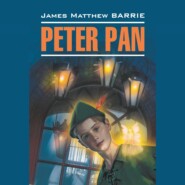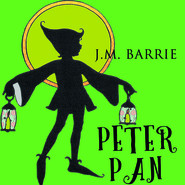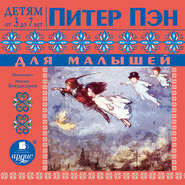По всем вопросам обращайтесь на: info@litportal.ru
(©) 2003-2025.
✖
When a Man's Single: A Tale of Literary Life
Автор
Год написания книги
2017
Настройки чтения
Размер шрифта
Высота строк
Поля
'Run up yourself, Abinger,' Rob said, seating himself near Mary's father; 'and, stop, here are my keys. I locked it in.'
'Why,' asked Dick, while his father also looked up, 'have you some savage animal up there?'
'No,' Rob said, 'it is very tame.'
Dick climbed the stair, after casting a quizzical look behind him, which meant that he wondered how long the colonel and Rob would last in a small room together. He unlocked the door of Rob's chambers more quickly than he opened it, for he had no notion of what might be caged up inside, and as soon as he had entered he stopped, amazed. All men of course are amazed once in their lives – when they can get a girl to look at them. This was Dick's second time.
It was the hour of the evening when another ten minutes can be stolen from the day by a readjustment of one's window curtains. Rob's blind, however, had given way in the cords, and instead of being pulled up was twisted into two triangles. Just sufficient light straggled through the window to let Dick see the man who was standing on the hearthrug looking sullenly at his boots. There was a smell of oil in the room.
Dowton!' Dick exclaimed; 'what masquerade is this?'
The other put up his elbow as if to ward off a blow, and then Dick opened the eyes of anger.
'Oh,' he said, 'it is you, is it?'
They stood looking at each other in silence.
'Just stand there, my fine fellow,' Dick said, 'until I light the gas. I must have a better look at you.'
The stranger turned longing eyes on the door as the light struck him.
'Not a single step in that direction,' said Dick, 'unless you want to go over the banisters.'
Abinger came closer to the man who was Sir Clement Dowton's double, and looked him over. He wore a white linen jacket, and an apron to match, and it would have been less easy to mistake him for a baronet aping the barber than it had been for the barber to ape the baronet.
'Your name?' asked Dick.
'Josephs,' the other mumbled.
'You are a barber, I presume?'
'I follow the profession of hair-dressing,' replied Josephs, with his first show of spirit.
Had Dick not possessed an inscrutable face, Josephs would have known that his inquisitor was suffering from a sense of the ludicrous. Dick had just remembered that his father was downstairs.
'Well, Josephs, I shall have to hand you over to the police.'
'I think not,' said Josephs, in his gentlemanly voice.
'Why not?' asked Dick.
'Because then it would all come out.'
'What would all come out?'
'The way your father was deceived. The society papers would make a great deal of it, and he would not like that.'
Dick groaned, though the other did not hear him.
'You read the society journals, Josephs?'
'Rather!' said Josephs.
'Perhaps you write for them?'
Josephs did not say.
'Well, how were you brought here?' Dick asked.
'Your friend,' said Josephs sulkily, 'came into our place of business in Southampton Row half an hour ago, and saw me. He insisted on bringing me here at once in a cab. I wanted to put on a black coat, but he would not hear of it.'
'Ah, then, I suppose you gave Mr. Angus the full confession of your roguery as you came along?'
'He would not let me speak,' said Josephs. 'He said it was no affair of his.'
'No? Then you will be so good as to favour me with the pretty story.'
Dick lit a cigar and seated himself. The sham baronet looked undecidedly at a chair.
'Certainly not,' said Dick; 'you can stand.'
Josephs told his tale demurely, occasionally with a gleam of humour, and sometimes with a sigh. His ambition to be a gentleman, but with no desire to know the way, had come to him one day in his youth when another gentleman flung a sixpence at him. In a moment Josephs saw what it was to belong to the upper circles. He hurried to a street corner to get his boots blacked, tossed the menial the sixpence, telling him to keep the change, and returned home in an ecstasy, penniless, but with an object in life. That object was to do it again.
At the age of eighteen Josephs slaved merrily during the week, but had never any money by Monday morning. He was a gentleman every Saturday evening. Then he lived; for the remainder of the week he was a barber. One of his delights at this period was to have his hair cut at Truefitt's and complain that it was badly done. Having reproved his attendant in a gentlemanly way, he tipped him handsomely and retired in a glory. It was about this time that he joined a Conservative association.
Soon afterwards Josephs was to be seen in Rotten Row, in elegant apparel, hanging over the railing. He bowed and raised his hat to the ladies who took his fancy, and, though they did not respond, glowed with the sensation of being practically a man of fashion. Then he returned to the shop.
The years glided by, and Josephs discovered that he was perfectly content to remain a hairdresser if he could be a gentleman now and again. Having supped once in a fashionable restaurant, he was satisfied for a fortnight or so with a sausage and onions at home. Then the craving came back. He saved up for two months on one occasion, and then took Saturday to Monday at Cookham, where he passed as Henry K. Talbot Devereux. He was known to the waiters and boatmen there as the gentleman who had quite a pleasure in tossing them half-crowns, and for a month afterwards he had sausage without onions. So far this holiday had been the memory of his life. He studied the manners and language of the gentlemen who came to the shop in which he was employed, and began to dream of a big thing annually. He had learnt long ago that he was remarkably good-looking.
For a whole year Josephs abstained from being a gentleman except in the smallest way, for he was burning to have a handle to his name, and feared that it could not be done at less than twenty pounds. His week's holiday came, and found Josephs not ready for it. He had only twelve pounds. With a self-denial that was magnificent he crushed his aspirations, took only two days of delight at Brighton, and continued to save up for the title. Next summer saw him at the Anglers' Retreat, near Dome Castle. 'Sir Clement Dowton' was the name on his Gladstone bag. A dozen times a day he looked at it till it frightened him, and then he tore the label off. Having done so, he put on a fresh one.
Josephs had selected his baronetcy with due care. Years previously he had been told that he looked like the twin-brother of Sir Clement Dowton, and on inquiry he had learned that the baronet was not in England. As for the Anglers' Retreat, he went there because he had heard that it was frequented by persons in the rank of life to which it was his intention to belong for the next week. He had never heard of Colonel Abinger until they met. The rest is known. Josephs dwelt on his residence at Dome Castle with his eyes shut, like a street-arab lingering lovingly over the grating of a bakery.
'Well, you are a very admirable rogue,' Dick said, when Josephs had brought his story to an end, 'and, though I shall never be proud again, your fluency excuses our blindness. Where did you pick it up?' The barber glowed with gratification.
'It came naturally to me,' he answered. 'I was intended for a gentleman. I dare say, now, I am about the only case on record of a man who took to pickles and French sauces the first time he tried them. Mushrooms were not an acquired taste with me, nor black coffee, nor caviare, nor liqueurs, and I enjoy celery with my cheese. What I liked best of all was the little round glasses you dip your fingers into when the dinner is finished. I dream of them still.'
'You are burst up for the present, Josephs, I presume?'
'Yes, but I shall be able to do something in a small way next Christmas. I should like to put it off till summer, but I can't.'
'There must be no more donning the name of Dowton,' said Dick, trying to be stern.
'I suppose I shall have to give that up,' the barber said with a sigh. 'I had to bolt, you see, last time, before I meant to go.'
'Ah, you have not told me yet the why and wherefore of those sudden disappearances. Excuse my saying so, Josephs, but they were scarcely gentlemanly.'
'I know it,' said Josephs sadly, 'but however carefully one plans a thing, it may take a wrong turning. The first time I was at the castle I meant to leave in a carriage and pair, waving my handkerchief, but it could not be done at the money.'









